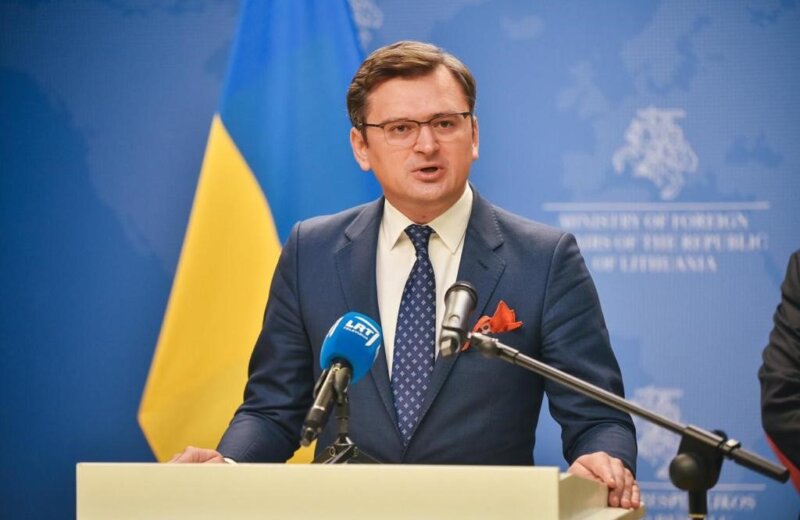As Ukraine suspends all flights, bus and train traffic at midnight tonight — March 27 — the country’s Foreign Ministry said that it won’t leave Ukrainians that are trapped abroad amid the novel coronavirus pandemic.
“The Foreign Ministry doesn’t leave you. We are looking for ways to bring you back even after the regular passenger traffic is suspended. For those who are stuck abroad at this time, we will provide maximum help,” Foreign Minister Dmytro Kuleba said in a video address.
There still remain thousands of Ukrainians abroad who requested help in returning home. Among them are about 700 Ukrainians in Indonesia, 150 in the Goa state of India, 50 in Peru, nine on the islands of Palau, according to the minister.
“We know about everyone who needs our protection, help and wants to come back,” Kuleba said.
The ministry launched a program called “Zahyst” (“Protection”) to help Ukrainians trapped abroad. Ukraine’s embassies and consulates around the world will inform them about possible ways to return home and will help resolve visa issues. They will coordinate with local authorities, law enforcement and businesses to help Ukrainians find places to stay and will help protect their rights.
The embassies and consulates will create special groups and chats on social media to ease the communication with these Ukrainians for each country or city.
Ukrainians will still be able to return home by foot or by car through one of 89 land border checkpoints that are currently available. Others may have to wait.
“The government of Ukraine will help citizens to return home when the epidemic situation in their country of residence stabilizes, and also if the Ministry of Health will be able to ensure proper conditions of control and observation after the return of these citizens to Ukraine, ” Kuleba also wrote on Facebook.
Ukrainian President Volodymyr Zelenksy announced on March 26 that Ukraine will close its borders and suspend all passenger traffic by the end of March 27. Kuleba and Interior Minister Arsen Avakov later said that land borders will be open for those returning by foot or by car. Additional confusion remains because Kyiv Boryspil International Airport shows flights arriving and departing on March 28 yet.
“Today we no longer have time to wait. We are facing a difficult choice between the citizens who are still abroad and the safety of 40 million citizens inside the country,” Zelensky said.
According to Zelenksy, over 80,000 Ukrainians have returned home via passenger traffic since March 13, when he first announced that the borders will be closed.
But thousands could not return: most couldn’t afford the tickets for the few remaining flights, some expected the government to provide free evacuations. Many had their return tickets for later dates, which got canceled by the airlines after Ukraine announced it will suspend air traffic on March 17.
CORONAVIRUS IN UKRAINE: WHAT YOU NEED TO KNOW
- Ukraine has extended its quarantine measures until April 24.
- The measures shuttered most everything but hospitals, supermarkets, pharmacies, banks, gas stations and other critical enterprises.
- There have been 226 confirmed cases of COVID-19 in Ukraine. The first case was identified on March 3.
- Five people have died from COVID-19 in Ukraine. One person recovered.
- Three Ukrainians died from COVID-19 in Italy.
- How the Ukrainian government has been responding: TIMELINE
- Misinformation on coronavirus is going viral in Ukraine.
- Doctor’s advice: How to stay safe.
- Foreign Ministry: What you need to know about traveling to and from Ukraine now
- Why the Kyiv Post isn’t making its coverage free in the times of COVID-19.
Effects on economy:
- Here’s what the virus is doing to Ukraine’s economy.
- Ukrainian businesses respond to the crisis.
- The virus disrupts the transport sector. Ukrainian airlines canceled some flights to 16 countries due to the novel coronavirus.
- The National Bank of Ukraine continued to cut the policy rate while trying to buffer the hryvnia from coronavirus panic.
- The former minister of economy says half a million Ukrainians may lose their jobs in the COVID-19 crisis.



